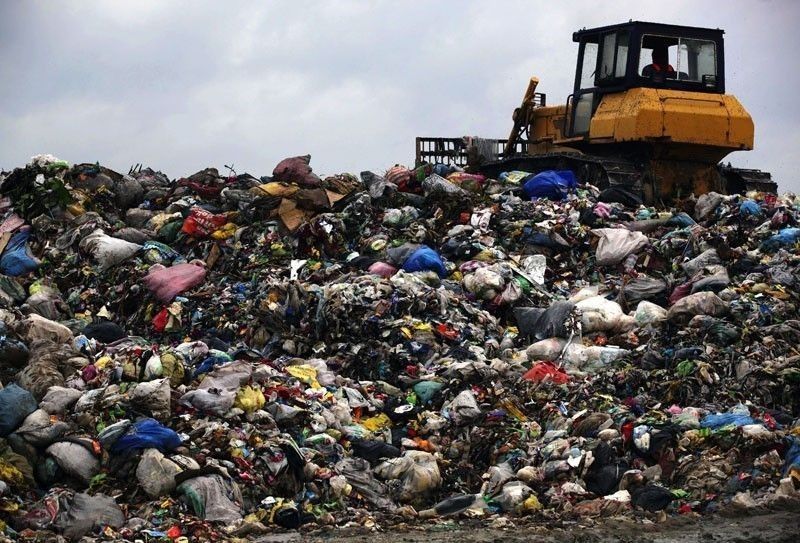Commentary: The politics of waste and waste in politics

The alarm about looming environmental disasters has been sounded off a couple of decades ago. But, the discourse on the topic has not changed much.
People are still debating the best garbage disposal system that will not hurt air, land or water. And, while people are doing that, the garbage situation is slowly creeping to crisis proportions. Politics and money seem to be the culprits nonetheless.
According to the Department of Environment and Natural Resources, the Philippines produces some 9.2 million kilograms per day. In Metro Manila alone, residents generate about 12,500 tons per day, earning us a spot in the top five cities of the world with the most waste.
Of the LGUs in Metro Manila, Quezon City gets the top spot by generating about 3,600 tons a day, followed by Manila with 1,174 tons per day, Caloocan, 912; Parañaque, 634 and Makati, 474. For its part, the Metropolitan Manila Development Authority estimates that 85 percent of the garbage produced in Metro Manila end up in sanitary landfills.
Given these dimensions of the waste management problem, it should be a cause for alarm as it exacerbates the climate change crisis.
Scientists, environmentalists and policymakers discuss about that the solution is recycling. But the sad reality here is that the Philippines does not have a sufficient number of recycling facilities for the non-organic waste.
For the organic waste, on the other hand, this is intended for the landfills. Upon checking, there are only three landfills that service Metro Manila’s requirements, with a total of about 130 hectares.
Let’s get down to the implications. Not having enough recycling facilities means that we are unable to recycle enough. Whatever non-organic waste that is not recycled adds to the problem.
Let’s take plastics as an example. Some LGUs have moved to ban the use of certain plastics and it is understandable why.
According to a 2015 report by the Ocean Conservancy charity and the McKinsey Center for Business and Environment, the world’s third largest source of plastic pollution is the Philippines.
It is interesting to know that the development of plastics started with natural materials that possess plastic properties such as shellac and chewing gum. From there, natural materials such as rubber, nitrocellulose, collagen and galalite were chemically modified.
Then came Parkesine, known today as celluloid, the polyvinyl chloride or PVC and the breakthrough product known as Bakelite, the first synthetic, mass-produced plastic. Since Bakelite, there have been many types of plastics that have been developed with more desirable properties.
Recently, President Rodrigo Duterte has verbally floated an all-out ban on plastics nationwide. That can only mean one thing—that the problem is getting out of hand and that existing solutions are not working at the level they should be.
On the other hand, landfills, while burying the problem, damages the air and water. Decomposing waste produces methane gas, a greenhouse gas harmful to the environment. If and when methane gas leaks in the air before being used, it warms the atmosphere by absorbing the sun’s heat.
While this gas does not stay in the atmosphere as long as carbon dioxide, it is said to be more devastating to the climate because of its effective heat absorption properties. At the same time, toxic substances seep into our water table, affecting the quality of the water Filipinos drink and eventually the health of the people.
Are there viable and sustainable solutions other than the ones we have? The literature on the topic tells us there are. But like anything new, obstacles like politics and money come into play.
Landfill operations—which incidentally do not literally deserve the qualifier “sanitary”—is a business. The government, through MMDA, pays the landfill owner what is termed as “tipping fees.”
There is nothing wrong with such except that powerful vested interests are involved in those operations. This could be the reason why new technologies that deviate from a landfill approach fail to see the light. These will potentially reduce the volume of landfill business. But isn’t there enough excessive garbage to go around for all of them?
At P600 per ton paid by the government, that is a whopping P7.5 million per day. I certainly doubt if anyone is willing to budge, environmental and climate crisis, notwithstanding.
In the commentaries that I have written, I have called on the government to pay more attention to the crisis that is climate change. While we concede that there are snippets of government work geared towards this problem, I feel that the attention given has not reached the level of an emergency, as should be the case.
As we keep on saying, the government has asked for emergency powers on several things including the EDSA traffic, but never on the climate change, the effects of which could be existential in nature.
Meanwhile, people are stuck with the old technologies in fixing our waste management crisis because of politics. But politics is not necessarily evil and was never intended to be. It can be used to arrive at a consensus that will bring about the common good.
Like the technologies that interested politicians protect, their brand of politics must also evolve into something in tune with the times. Otherwise, people will not only have to bear with the politics of waste, but also the waste in our politics.
Edwin Santiago is a fellow and member of the editorial board of think tank Stratbase ADR Institute.
- Latest



























